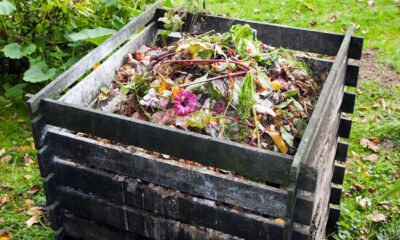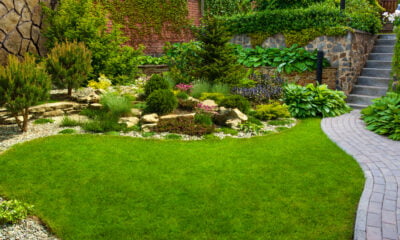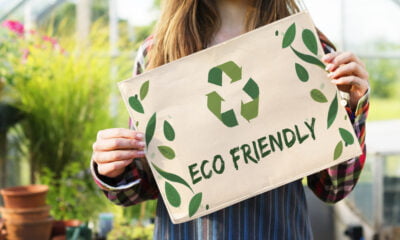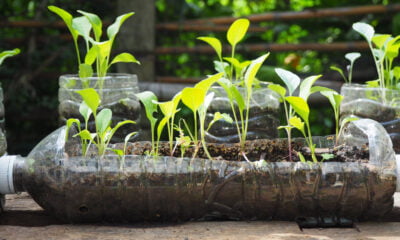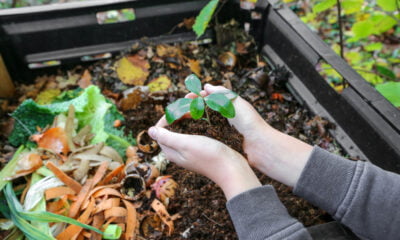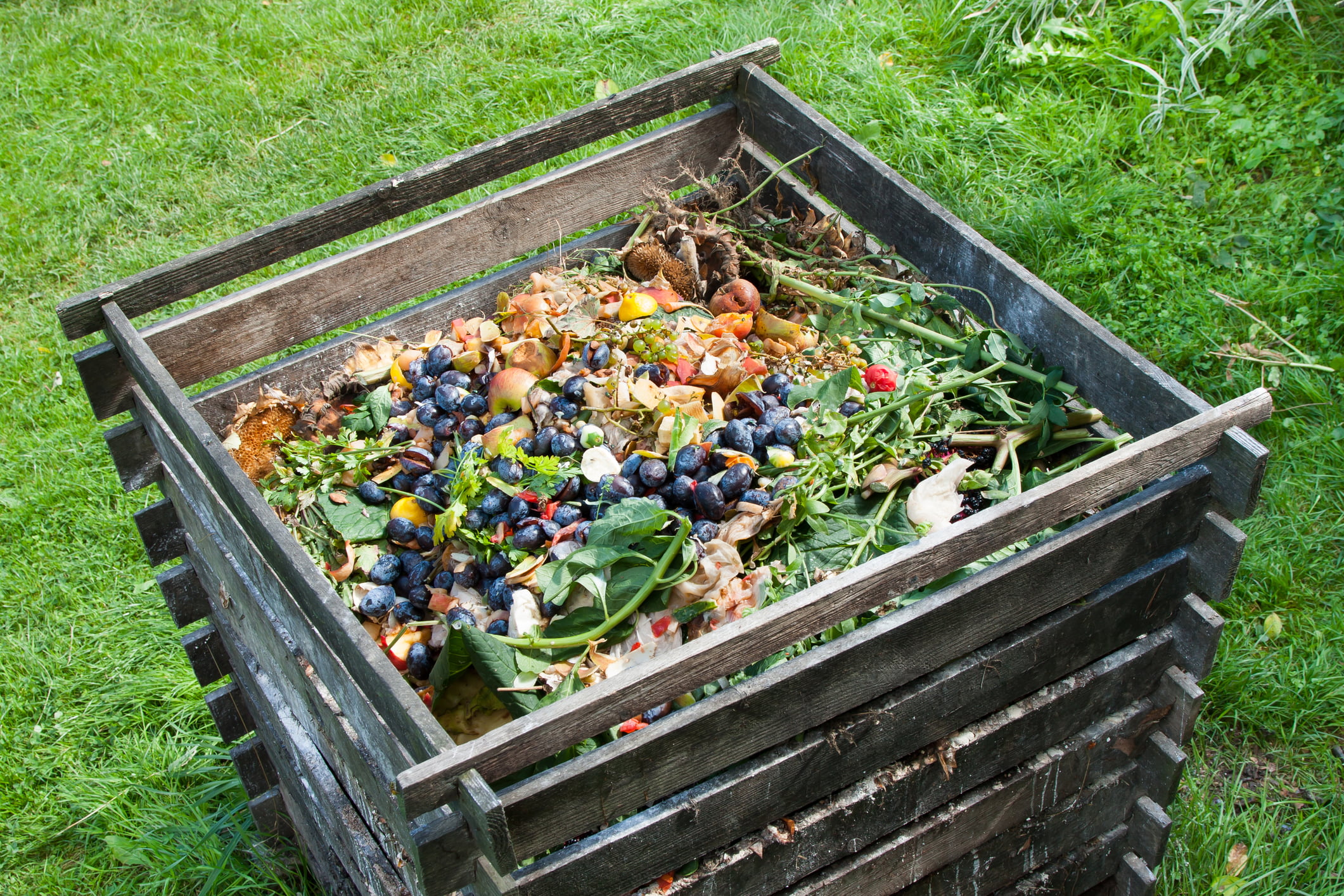
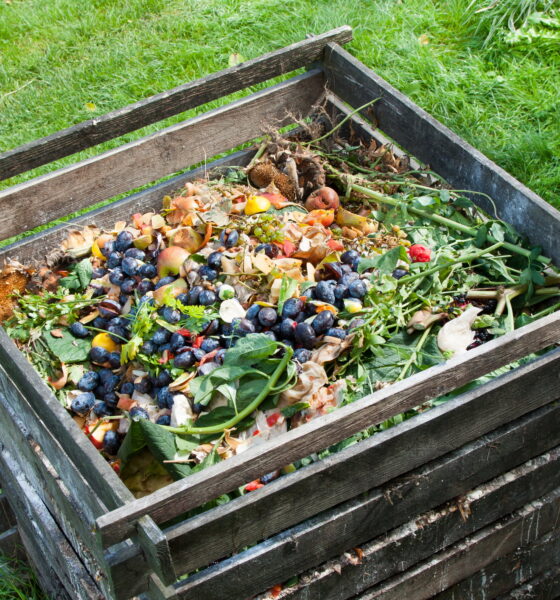
Magazines
Eco-Friendly Gardeners Can Make Compost from Organic Waste
Gardening is becoming more popular these days. Fifty-five percent of households have a garden. People that are concerned about sustainability are more likely to garden to lower their carbon footprint and be more independent as the threat of a global food crisis looms.
Are you trying to create an eco-friendly garden or lawn? There are a lot of things that you have to take into consideration.
One of the most important steps that you will want to take is creating compost. Compost is much better for the environment than most fertilizers. Other fertilizers use a lot of chemicals and require a lot of energy to be processed, which leads to a larger carbon footprint. Those fertilizers also have to be transported to the store where they will be purchased, which also leads to a higher carbon footprint.
You should try creating your own compost from home for your garden. But what steps will you need to take? Keep reading to learn more.
Create Compost for Your Eco-Friendly Garden
One of the unpaid debts that cities have to the environment is the proper handling of organic waste. Uncontrolled waste dumps pollute the land, air and water. The worst thing is that one way or another they end up reaching the food chain of humans or animals. Therefore, to pay the debt we have to the environment, numerous campaigns have been developed that call on us to use licensed waste clearance and to make sure that the waste we throw goes to the recycling process.
Recycling, which should be practiced more and more among individuals and industries, only solves the treatment of light containers, plastic; paper and glass. However, we are still far from finding the ecological solution that we need to address the problem of organic waste that we cannot throw in the recycling bins.
However, such waste, with a small investment and a quick lesson, can become excellent compost for plants and fruit trees that need to be fertilized.
Organic residues, for example, are made from garden pruning and fruit peels. In general, vegetables remain if they are to be made at home on a small scale. The advantage of compost is that it is organic, so you will not have to use chemical or synthetic fertilizers to grow your plants or garden vegetables. You don’t have to deal with the organic waste that you don’t want. Instead, you can only do it with the ones you want, which is the better of course. Unfortunately, many people don’t like to deal with certain types of organic waste, which is totally understandable. Few people want to handle dung, horse or chicken droppings.
The good news is that you have alternative options. You can also make a good compost with eggshells, fruit peels, parts of vegetables that we don’t use, coffee, ashes and other organic matter, which means that everyone can have their compost “recipe”. In addition to the various organic materials that can be used for composting, there are also different ways to create compost. One popular method is using an in-ground compost bin, simply a hole dug into the ground for composting. This type of composting is great for those with limited space or who prefer a more natural look for their compost area. With an in-ground compost bin, the organic materials are added directly into the hole and allowed to decompose naturally over time. This method requires less maintenance and is a great way to create nutrient-rich soil for your garden or plants.
Therefore, some small trash cans can be used to create compost in your home. This makes it easier to create an ecosystem that causes the controlled decomposition of waste, that the primary decomposition is already composted and added to the soil where our plants are rooted, they improve its nutritional composition, making plants and vegetables stronger and stronger.
Many thrift stores offer homemade litter boxes for use, and the kit includes everything you need to create the litter and easy instructions. With this, we will feed our plants without draining the earth’s resources, without chemical substances and without polluting emissions, in addition to giving a good exit to organic waste by recycling it to turn it into organic manure or compost.
Use Compost for Your Eco-Friendly Garden
Eco-friendly households can create their own gardens to lower their carbon footprint and minimize their reliance on the global food supply. However, they have to know what steps to take. Creating their own compost for organic waste can be a great option.


 Features11 months ago
Features11 months agoEco-Friendly Cryptocurrencies: Sustainable Investment Choices

 Energy11 months ago
Energy11 months agoThe Growing Role of Solar Panels in Ireland’s Energy Future

 Energy10 months ago
Energy10 months agoGrowth of Solar Power in Dublin: A Sustainable Revolution

 Energy10 months ago
Energy10 months agoRenewable Energy Adoption Can Combat Climate Change
